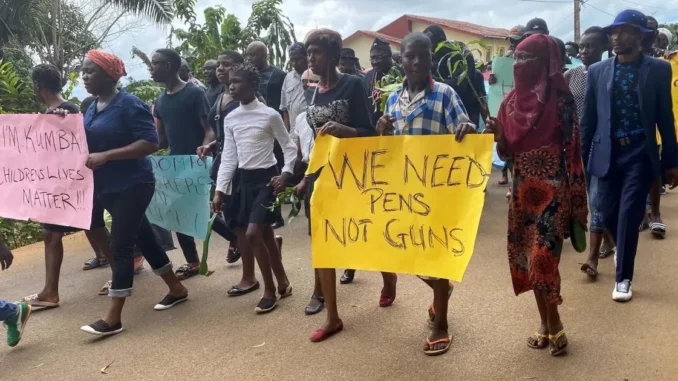
The crisis, centered in the country’s English-speaking regions, has led to the closure of thousands of schools, and left 1.4 million school-age children in need of educational assistance. The conflict, which began in 2017, has resulted in over 6,000 deaths and displaced more than 760,000 people.
Separatist fighters have enforced school boycotts, attacked educational facilities, and intimidated families, causing widespread disruption to learning. The impact on students like Jane Ndamei, who narrowly escaped an attack during her exams, is profound. Many children have been forced to relocate or abandon their education entirely.
The situation has led to increased early pregnancies and shattered aspirations for countless young people. Families like Nelson Tabuwe’s have been uprooted, with children out of school for years and struggling to survive in new environments.
The Norwegian Refugee Council describes the targeting of schools as a “catastrophe,” emphasizing the long-term implications for affected communities. As the conflict persists, the future of an entire generation of Cameroonian youth hangs in the balance, with limited access to education threatening to perpetuate cycles of poverty and instability.
The deliberate targeting of schools and denial of education is seen as a grave violation of children’s rights, with far-reaching consequences for the country’s development and stability.
